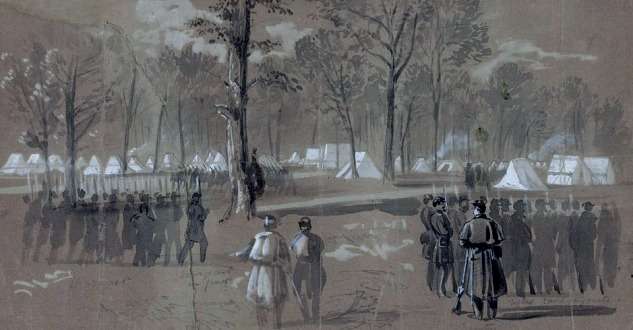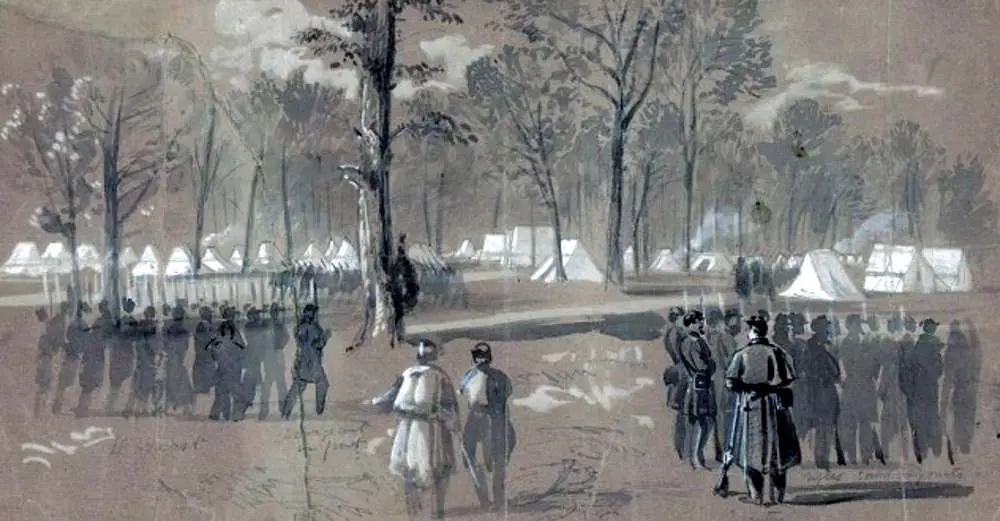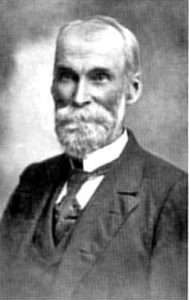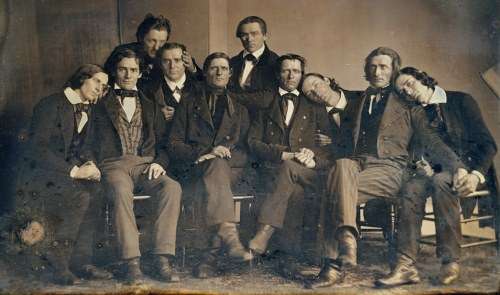The beloved Civil War song Tenting Tonight captured the war-weariness of the homesick soldier, but it was written by a draftee who never fought.
That draftee, Walter Kittredge, was born on Oct. 8, 1834 in Reed’s Ferry (now Merrimack), N.H.
Kittredge was 29 and singing with the famous Hutchinson Family Singers when he got his draft notice in 1863.
Hutchinson Family Singers
The Hutchinson Family Singers reigned as the most popular American entertainers in the 1840s. They toured New England singing native folk tunes and patriotic anthems in four-part harmony.
The singers didn’t shy away from controversy and sang political songs promoting workers’ rights, women’s rights, abolition and temperance. During the Civil War they sang at at mass outdoor meetings promoting the Union cause.
The Hutchinson Family Singers were still in demand when Kittredge joined them in 1855. Eight years later, when he received his draft notice, Kittredge knew he did not want to go to war.
The night before he had to report for the draft, a haunting melody ran through his head. So did the words “tenting on the old campground.”
He wrote the entire song and the lyrics that night at his home in Merrimack.

Camp of the second Connecticut regiment at Washington, in a grove on the north side of the city, May, 1961. (Library of Congress)
Tenting Tonight
Kittredge never had to fight in the Civil War because he was rejected by the surgeons at the draft board. Lucky for him, he’d had rheumatic fever as a child.
The Hutchinsons learned Tenting Tonight and sang it at Old High Rock in Lynn, Mass. Their audience loved it. The next year a New York song firm published the song as sheet music. Within three months the company sold more than 10,000 copies, a huge hit for the time.
The song captured the public’s changing taste for music. Strident tunes like Battle Hymn of the Republic gave way way to songs of sorrow and loss.
Soldiers on both the North and the South sang Tenting Tonight at Civil War encampments. Fifty years after the war ended, tearful veterans sang Tenting Tonight when they gathered for reunions. They sang it at the Philadelphia Centennial of 1876 and the Great Soldiers’ Reunion in Washington in 1892.
Tenting Tonight just kept going. Roy Rogers sang it in the 1938 film Come on Rangers. Modernist composer Charles Ives quoted the song in his own work They Are There, a popular song during both world wars. Musicians still perform it to this day.
Tenting Tonight has been called one of the nation’s first protest songs for its antiwar sentiment:
We’re tenting tonight on the old campground,
Give us a song to cheer
Our weary hearts, a song of home
And friends we love so dear.Chorus:
Many are the hearts that are weary tonight,
Wishing for the war to cease;
Many are the hearts looking for the right
To see the dawn of peace.Tenting tonight, tenting tonight,
Tenting on the old camp ground.
This story was updated in 2022.



4 comments
[…] Charles Dickens didn’t approve of Justin Morrill, not one little bit. Morrill was a congressman from Vermont who probably never met Dickens. But the British author blamed Morrill for starting the Civil War. […]
[…] Squirrel Nut Zippers are among the old New England brands, such as Charleston Chews and Junior Mints, that still survive. Today they’re made by the company that produced candy for Civil War soldiers. […]
[…] O’Neill fled to the United States during the Great Hunger. He then joined approximately 200,000 Irish natives who fought on both sides of the Civil War. […]
[…] Justin Morrill for 30 years led the fight to raise tariffs on goods that competed with U.S. products. For that, he took the blame — unjustly — for starting the Civil War. […]
Comments are closed.